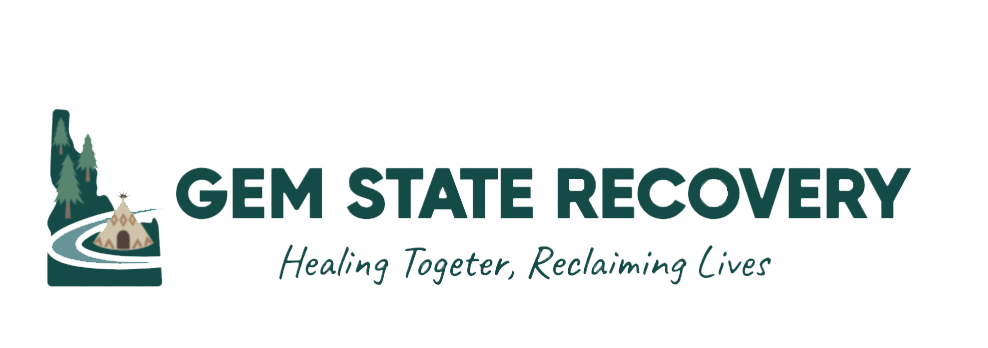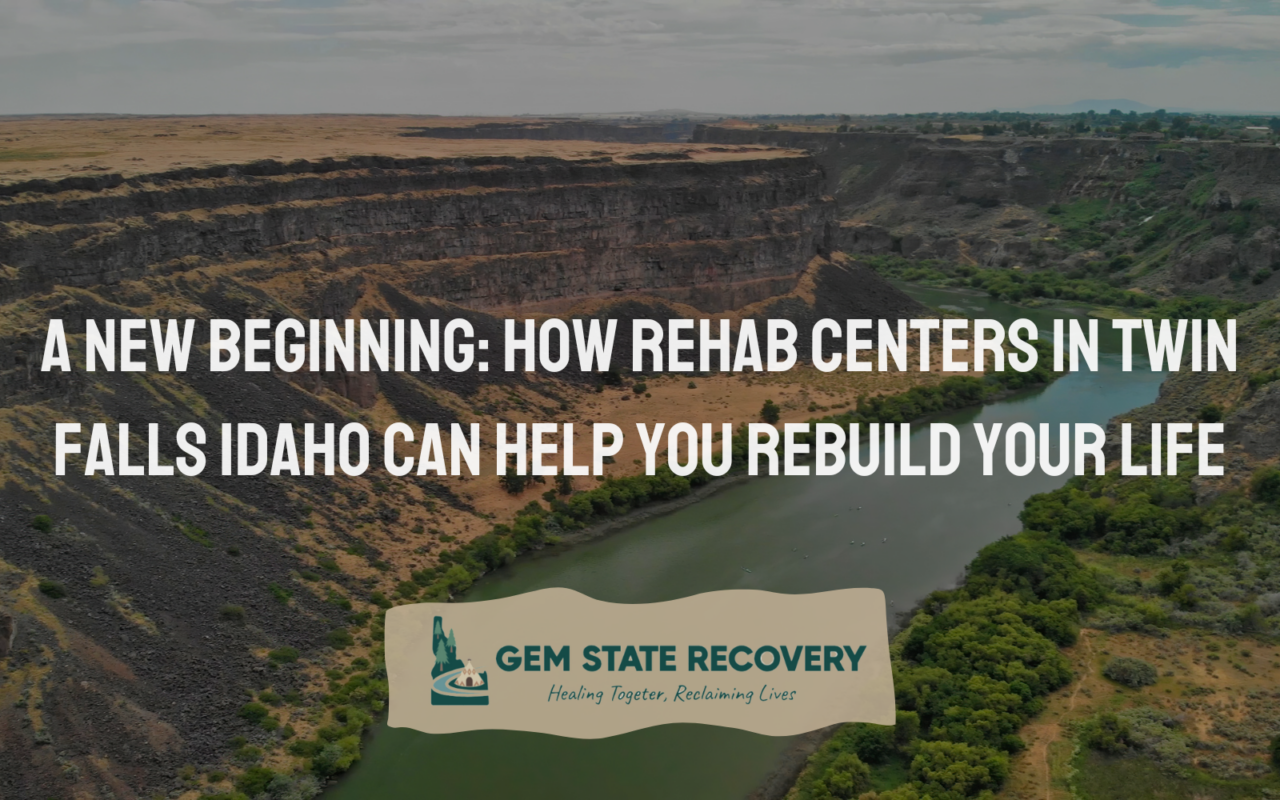Addiction is a complex and challenging struggle that affects millions of people worldwide. For those in Twin Falls, Idaho, the battle against substance abuse can feel particularly isolating. But there’s hope. Rehab centers in Twin Falls Idaho offer a beacon of support, providing the necessary tools and resources to help individuals rebuild their lives. This blog post will explore the vital role rehab centers play in recovery, offering valuable insights and practical tips for recovering addicts, supportive families, and medical professionals.
Understanding Addiction
Definition of Addiction
Addiction is a chronic disease that affects the brain and behavior, creating an urge to use substances despite harmful consequences. This often leads to health, social, and economic problems. Viewing addiction as a disease helps remove the stigma and promotes a compassionate approach to treatment. By recognizing the genetic, environmental, and psychological factors, we can develop better interventions and support systems. Compassionate care, along with evidence-based treatments, offers hope and a path to recovery for individuals and their families.
Factors that Contribute to Addiction
Genetics
Genetics play a significant role in addiction. Individuals with a family history of substance abuse are more likely to develop addiction themselves. This predisposition is often due to inherited variations in brain chemistry and function that affect how individuals respond to drugs and alcohol. Understanding these hereditary factors can help in creating personalized treatment plans that address specific genetic vulnerabilities, increasing the chances of successful recovery.
Environment
The environment, including upbringing, peer pressure, and social influences, significantly impacts addiction. Growing up in a family where substance abuse is prevalent can normalize drug or alcohol use, making it more likely for individuals to follow similar patterns. Moreover, being surrounded by peers who engage in drug use can increase the risk of addiction due to social pressure and the perceived acceptability of such behaviors. Addressing environmental factors through community support and education can be vital in preventing addiction.
Mental Health
Co-occurring disorders, such as depression, anxiety, or PTSD, often accompany addiction. These mental health issues can exacerbate substance abuse, as individuals may use drugs or alcohol to self-medicate and alleviate their symptoms. Recognizing and treating these underlying mental health issues is crucial for a successful recovery, as it addresses the root causes of addiction rather than just the symptoms. Comprehensive treatment plans that integrate mental health care with addiction services are often the most effective. Rehab centers in Twin Falls Idaho are equipped to provide such integrated care, ensuring a holistic approach to recovery.
Stress and Trauma
Past trauma and chronic stress are powerful triggers for substance abuse. Traumatic experiences, such as physical or emotional abuse, can lead to long-term psychological distress, making individuals more susceptible to addiction as a coping mechanism. Chronic stress from life circumstances, such as financial troubles or work-related pressures, can also drive individuals towards substance use. Addressing these underlying issues through therapy, such as cognitive-behavioral therapy (CBT) or trauma-focused therapy, can pave the way for long-term recovery by helping individuals develop healthier coping strategies.
Common Substances Abused
Substances such as alcohol, opioids, methamphetamine, and marijuana are commonly abused. Each substance poses unique challenges and requires tailored treatment approaches.
Negative Effects of Addiction on Physical Health
Addiction wreaks havoc on physical health. It can lead to organ damage, such as liver cirrhosis from alcohol abuse or lung disease from smoking. Additionally, it weakens the immune system, making the body more susceptible to infections and illnesses. Other severe health issues include cardiovascular disease, neurological damage, and chronic pain. Understanding these risks emphasizes the importance of seeking help to prevent long-term damage and improve overall well-being.
Negative Effects of Addiction on Mental Health
Addiction severely impacts mental health, contributing to a range of conditions such as depression, anxiety, and cognitive impairments. The mental toll of addiction can be devastating, affecting emotional stability and leading to mood swings, irritability, and a decrease in motivation. It alters brain chemistry, which can make it difficult to experience pleasure from everyday activities. This pervasive impact on mental health underscores the necessity for comprehensive treatment and support.
Impact on Relationships and Daily Life
Addiction strains family dynamics, often leading to conflicts, mistrust, and emotional distress among loved ones. It commonly results in job loss due to decreased productivity, absenteeism, and impaired decision-making. Financial troubles arise as individuals may spend excessive amounts of money to sustain their addiction, leading to debt and financial instability. The disruption of daily life creates a cycle of despair that is hard to break without professional help. Addiction’s far-reaching effects highlight the need for a robust support system and effective interventions to restore balance and health in one’s life.
The Role of Rehab Centers in Recovery
Explanation of What a Rehab Center Is and Its Purpose
Rehab centers in Twin Falls Idaho provide a structured environment for recovery. They offer medical, psychological, and emotional support to help individuals overcome addiction and build a healthier future.
Different Types of Rehab Programs
Inpatient
Inpatient programs offer comprehensive care with 24/7 support. Patients stay at the facility and receive constant supervision and therapy, including individual counseling, group therapy, and medical care. This type of program is ideal for those needing intensive treatment and a structured environment to recover effectively.
Outpatient
Outpatient programs at rehab centers in Twin Falls Idaho provide flexible treatment options, allowing individuals to live at home while attending therapy sessions. These programs typically include weekly individual or group therapy, medication management, and other support services. Outpatient care is suitable for those who need ongoing support but have the stability to manage their daily lives.
Residential
Residential programs offer long-term treatment in a non-hospital setting, providing a supportive community and continuous care. Residents live at the facility and participate in a structured daily schedule that includes therapy, life skills training, recreational activities, and peer support. This approach helps individuals build a foundation for sustained recovery and reintegration into everyday life.
Benefits of Seeking Help from a Rehab Center
Professional Medical and Psychological Support
Rehab centers in Twin Falls Idaho provide access to a team of medical professionals and therapists who specialize in addiction treatment. These experts can offer comprehensive care, including medical detox, medication management, and psychological counseling, ensuring that individuals receive the support they need at every stage of their recovery journey.
Structured Treatment Plans
Individualized treatment plans are meticulously tailored to meet the specific needs and circumstances of each person. These plans can include a combination of therapies such as cognitive-behavioral therapy (CBT), group therapy, and holistic approaches like yoga and meditation, ensuring a well-rounded and holistic approach to recovery.
Safe and Supportive Environment
A rehab center offers a secure and nurturing environment where individuals can focus entirely on their recovery. This safe space is free from external triggers and distractions that can lead to relapse, providing a stable foundation for individuals to rebuild their lives and work towards long-term sobriety.
Access to Resources and Tools for Maintaining Sobriety
Rehab centers in Twin Falls Idaho equip individuals with a comprehensive toolkit of resources and strategies to maintain sobriety long after treatment. This includes ongoing support groups, relapse prevention strategies, life skills training, and access to community resources, all designed to help individuals stay committed to their recovery and navigate the challenges of daily life.
Addressing Common Concerns About Rehab Centers
Cost
Many rehab centers in Twin Falls Idaho accept insurance, significantly reducing out-of-pocket expenses. They also offer flexible payment plans and financial aid to make treatment accessible to everyone, regardless of their financial situation. These supports ensure individuals can receive care without the added financial stress.
Stigma
Overcoming societal judgments and addiction stigma is crucial for recovery. Rehab centers provide a safe, judgment-free environment focused on healing and personal growth. They offer emotional support, counseling, and a community of understanding peers, essential for breaking down stigma and fostering acceptance and self-worth.
Types of Therapies and Approaches in Rehab
Behavioral Therapies
Cognitive Behavioral Therapy (CBT)
Cognitive Behavioral Therapy (CBT) is a widely used therapeutic approach that helps individuals recognize and change negative thought patterns and behaviors related to addiction. Through structured sessions, individuals learn to identify triggers, develop healthier coping mechanisms, and reinforce positive behaviors, ultimately leading to lasting change.
Dialectical Behavior Therapy (DBT)
Dialectical Behavior Therapy (DBT) focuses on building emotional regulation skills and coping mechanisms to handle stress and triggers. This approach is particularly beneficial for those who struggle with intense emotions and self-destructive behaviors. Rehab centers in Twin Falls Idaho, offer DBT, combining individual therapy with group skills training, teaching techniques such as mindfulness, distress tolerance, and interpersonal effectiveness.
Medication-Assisted Treatment (MAT)
Medication-Assisted Treatment (MAT) combines the use of FDA-approved medications with counseling and behavioral therapies to manage withdrawal symptoms and reduce cravings. This integrated approach enhances the effectiveness of treatment by addressing both the physical and psychological aspects of addiction. Rehab centers in Twin Falls Idaho often use medications such as methadone, buprenorphine, and naltrexone in their MAT programs.
Holistic Approaches
Incorporating holistic practices such as yoga, meditation, art therapy, and other mind-body techniques can support overall well-being and complement traditional therapies. These approaches help individuals connect with their inner selves, reduce stress, and promote relaxation. By addressing the physical, emotional, and spiritual aspects of recovery, holistic methods can enhance the overall treatment experience.
Family Therapy
Family therapy involves family members in the recovery process to rebuild relationships and create a supportive home environment. This therapeutic approach recognizes that addiction impacts not just the individual, but also their loved ones. Through family therapy sessions, members learn to communicate effectively, set healthy boundaries, and provide mutual support, fostering a collaborative approach to recovery.
Group Therapy
Group therapy offers peer support and shared experiences, fostering a sense of community and solidarity in recovery. In a group setting, individuals can share their struggles and successes, gain insights from others, and build a network of supportive relationships. This collective environment helps reduce feelings of isolation and provides valuable feedback and encouragement from peers on a similar journey.
Choosing the Right Rehab Center
Factors to Consider
Accreditation and Licensing
Ensure the facility meets high standards of care and has appropriate accreditation and licensing.
Treatment Approaches Offered
Look for evidence-based practices and alternative therapies that align with your needs.
Success Rate and Reviews
Consider testimonials and case studies from previous clients to gauge the center’s effectiveness.
Availability of Aftercare Programs
Aftercare programs provide continued support to maintain sobriety post-treatment.
Location and Facilities
Proximity to home and the amenities offered can impact comfort and convenience.
The Rehab Process What to Expect
Initial Assessment and Intake Process
An initial assessment helps evaluate individual needs and create a personalized treatment plan.
Detoxification Phase
Detoxification manages withdrawal symptoms under medical supervision, providing a safe start to recovery.
Individual Therapy Sessions
One-on-one counseling addresses personal issues and develops coping strategies tailored to individual needs.
Group Therapy and Support Groups
Building a community of support through group therapy and support groups helps individuals learn from others’ experiences.
Holistic Approaches
Incorporating holistic practices like yoga and meditation supports overall well-being.
Family Involvement in the Recovery Process
Encouraging family participation in therapy sessions and support groups strengthens relationships and provides a supportive network.
Life After Rehab Maintaining Sobriety
Importance of Creating a Sober Support System
Building a network of friends, family, and support groups is crucial for maintaining sobriety.
Relapse Prevention Strategies
Identifying triggers, developing coping mechanisms, and creating a relapse prevention plan are essential for long-term success.
Continued Therapy and Counseling Options
Ongoing support through individual and group therapy helps individuals stay on track.
Lifestyle Changes for Maintaining Sobriety
Incorporating exercise, healthy eating habits, and engaging in hobbies promotes well-being and supports sobriety.
Employment and Education Opportunities
Pursuing career goals and furthering education can be part of the recovery process, providing purpose and direction.
The Impact of Rehab on Your Life
Personal Growth and Self-Discovery
Recovery leads to personal growth, self-discovery, and a stronger sense of self.
Rebuilding Relationships
Repairing and strengthening connections with family and friends improves overall well-being.
Career Opportunities and Financial Stability
Achieving job stability and financial independence contributes to a brighter future.
Improved Physical and Mental Health
Enhanced overall well-being and quality of life are key benefits of recovery.
Overall Improvement in Quality of Life
Increased happiness, fulfillment, and life satisfaction are the ultimate rewards of successful recovery.
Community and Social Support
Role of Community Organizations
Local programs, volunteer opportunities, and social services support recovery efforts.
Importance of Advocacy and Education
Raising awareness about addiction and reducing stigma is crucial for a supportive community.
Opportunities for Giving Back
Sharing your story, mentoring, and contributing to the recovery community fosters a sense of purpose and fulfillment.
Conclusion
Rehab centers in Twin Falls Idaho, offer a lifeline for those battling addiction. With professional guidance and a supportive environment, individuals can rebuild their lives and find a new beginning. The journey of recovery requires persistence, support, and self-compassion. Seek help today and take the first step towards a brighter future. Call us at (208) 314-3107 or visit our website https://gemstaterecovery.com/.






